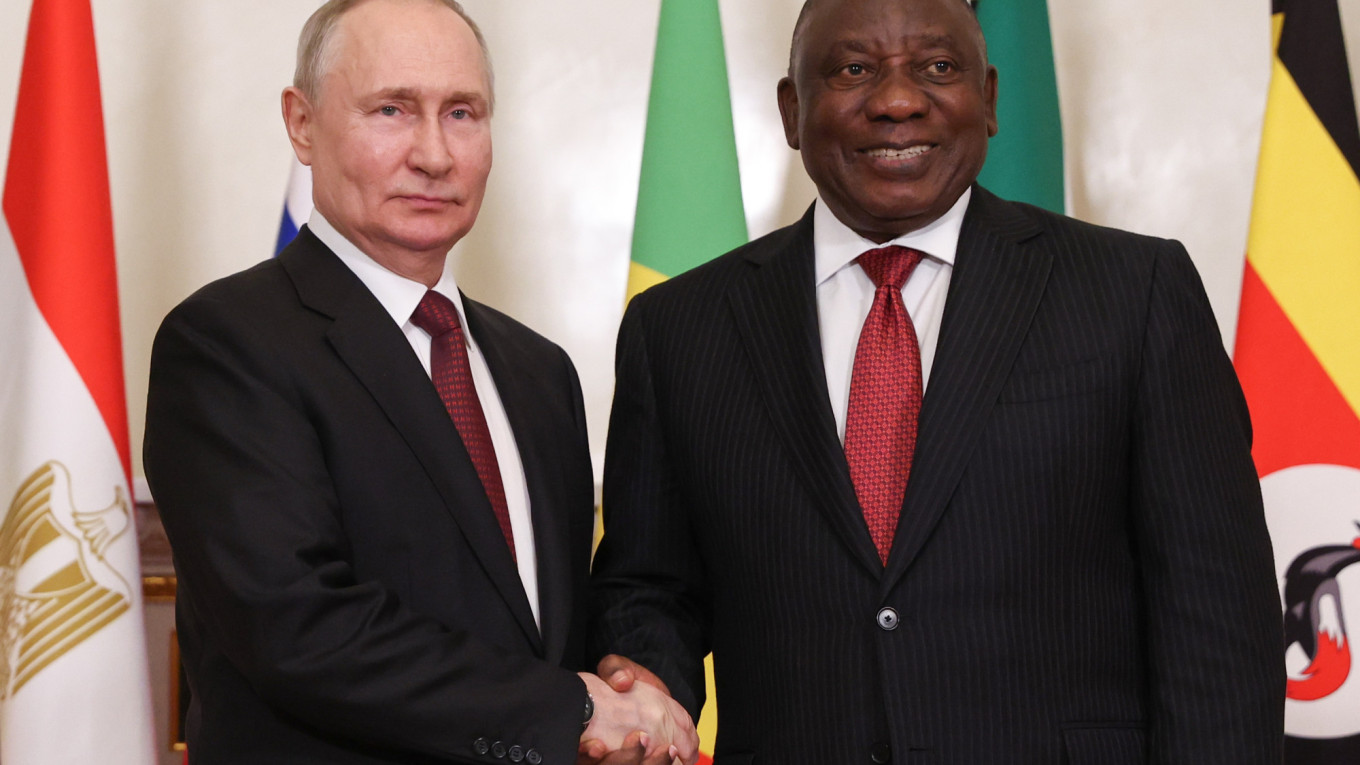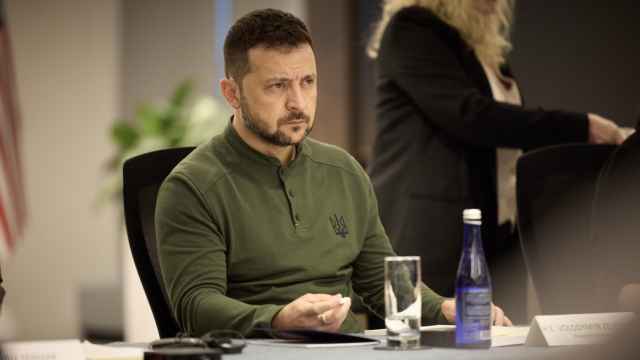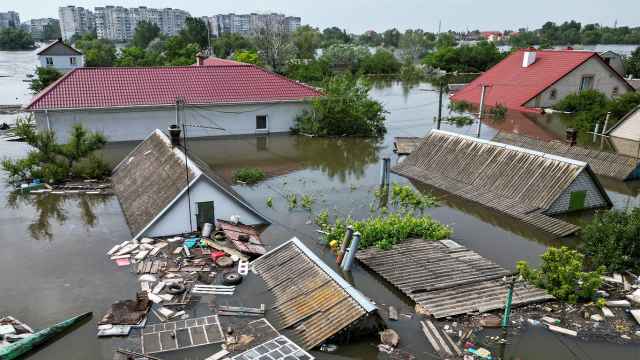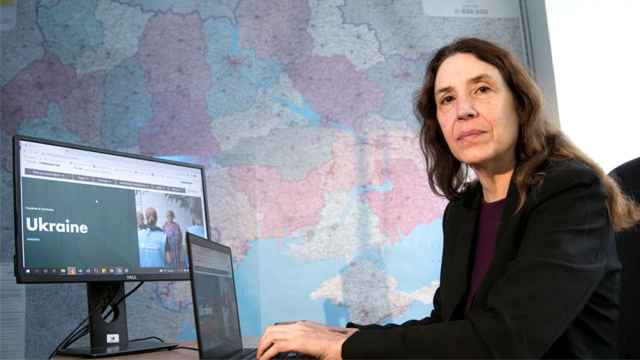Russian President Vladimir Putin on Saturday said the main objective of the deal that allowed Ukrainian grain exports to resume was not achieved, in a call with his South African counterpart Cyril Ramaphosa.
The deal that eased fears of a global food crisis sparked by the offensive in Ukraine is due to expire late Monday — unless Russia agrees to renew it.
"The main goal of the deal, namely the supply of grain to countries in need, including on the African continent, has not been implemented," Putin said according to a Kremlin readout.
A memorandum on unhindered Russian food and fertilizer exports had been signed in parallel to the grain deal.
Russia however says that obstacles to its own exports remain, and threatens to pull out of the grain deal over the issue.
"Vladimir Putin stressed that the obligations recorded in the relevant Russia-UN memorandum to remove obstacles to the export of Russian food and fertilizers still remain unfulfilled," according to the Kremlin statement.
On Friday Turkish President Recep Tayyip Erdogan said he was confident that Putin would agree the deal should be extended.
But when asked by Russian press agencies, the Kremlin spokesperson did not confirm Erdogan's claims.
"There is no statement about this from the Russian side," Dmitry Peskov said.
The deal, which Erdogan helped broker, has allowed Ukraine to ship more than 32 million tons of grain past Russian warships in the Black Sea.
Ramaphosa and Putin also talked about preparations for the upcoming BRICS summit in South Africa, the Kremlin said.
The Russian leader has been invited to attend despite an International Criminal Court warrant against him.
The two heads of state also discussed the Russia-Africa summit, scheduled at the end of July in St. Petersburg, and agreed to hold bilateral talks on the sidelines.
A Message from The Moscow Times:
Dear readers,
We are facing unprecedented challenges. Russia's Prosecutor General's Office has designated The Moscow Times as an "undesirable" organization, criminalizing our work and putting our staff at risk of prosecution. This follows our earlier unjust labeling as a "foreign agent."
These actions are direct attempts to silence independent journalism in Russia. The authorities claim our work "discredits the decisions of the Russian leadership." We see things differently: we strive to provide accurate, unbiased reporting on Russia.
We, the journalists of The Moscow Times, refuse to be silenced. But to continue our work, we need your help.
Your support, no matter how small, makes a world of difference. If you can, please support us monthly starting from just $2. It's quick to set up, and every contribution makes a significant impact.
By supporting The Moscow Times, you're defending open, independent journalism in the face of repression. Thank you for standing with us.
Remind me later.






